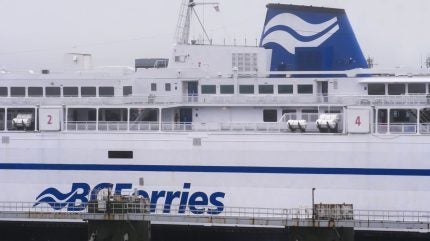
The British Columbia (BC) Ferry Commission has given the green light for BC Ferries to procure four new major vessels (NMVs) as part of its fleet renewal strategy.
The decision follows BC Ferries’ application submitted in December 2024 to the Commissioner for five new diesel-battery hybrid, “all-electric-ready” ships for the NMV project.
The project aims to replace the Queens of Alberni, New Westminster, Coquitlam, and Cowichan vessels, which are said to be the oldest major ships in BC Ferries’ fleet and add one new vessel to the fleet.
BC Ferries plans to commission the first NMV in the spring of 2029.
British Columbia Ferry Commission Commissioner Eva Hage said: “Replacing the legacy vessels is essential in order to maintain safe, reliable service on the main routes.
“These four ferries are reaching the end of their lives, and additional life extensions are not an option. Investing further in them would simply delay the inevitable expenditure; at the same time, it would increase the risk of mechanical breakdowns and service disruptions.”
However, the Commission has declined the request for a fifth vessel, citing “systemic funding gaps.”
The Commission’s decision has highlighted two uncertainties that are said to be pivotal to the viability of BC’s marine transportation network.
These include a systemic funding shortfall and a lack of consensus regarding anticipated future traffic demands on the ferry system.
Hage added: “Replacing the four legacy ferries will mean a much-needed increase in capacity and reliability.
“A fifth vessel, however, is neither essential nor affordable at this time, and approving it would be fiscally irresponsible. It would put even more upward pressure on fares, place an even greater burden on taxpayers, and may lead to unsustainable debt levels at BC Ferries.”
BC Ferries sought the purchase of five vessels to strengthen capacity and resilience on its busiest routes in response to population growth, tourism demand, and supply chain requirements.
The company stated that procuring all five ships now would be more cost-effective due to favourable market conditions, fixed-price contracts, and economies of scale than building one or two at a time.
BC Ferries president and CEO Nicolas Jimenez said: “This is a missed opportunity to take advantage of fixed pricing to build five ships in a very affordable way for our customers.
“We fully expect shipbuilding costs and demand will continue to grow, putting even more pressure on future fares and reliable service, and may hold us back from meeting the expectations of our customers and the communities we serve. We’ll now reassess how we can best deliver service in the future that customers, coastal communities, and local businesses expect.”
Industry experts have also suggested that delaying additional vessel purchases could result in significantly higher costs in the future.
BC Ferries’ data indicates that peak-season traffic has already reached near-capacity levels on major routes.
The company has expressed concerns that without an additional vessel, congestion and delays could worsen over the next decade.
The broader issue of funding remains a key challenge. Although BC Ferries is expected to finance the four approved vessels without affecting fares until at least 2028, long-term financial solutions are still required.
The provincial government has acknowledged these concerns and has committed to working with BC Ferries on potential funding strategies.
Last year, Damen Shipyards Galati laid the keel of BC Ferries’ first two of four fully electric ferries.



